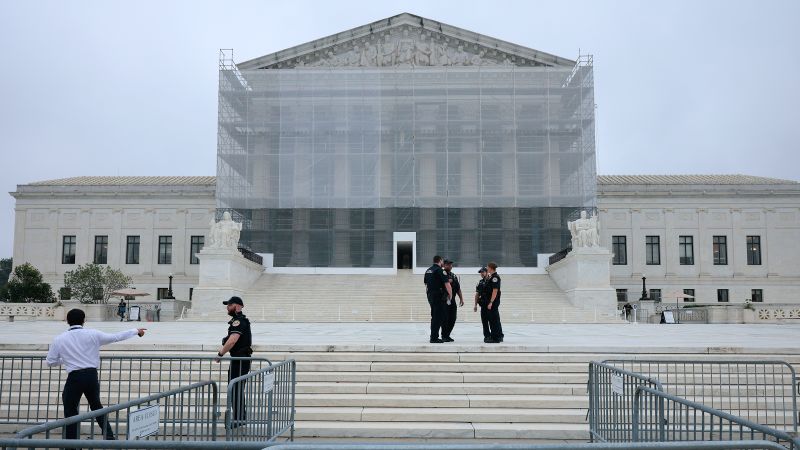Supreme Court Mandates Reconsideration of Transgender Healthcare & Identity Document Cases Following Landmark Ruling

In a significant development impacting transgender rights, the Supreme Court has issued an order directing lower courts to re-examine decisions related to transgender healthcare access and the issuance of birth certificates. This directive follows a recent, highly influential Supreme Court ruling that upheld restrictions on gender-affirming care for transgender youth.
The initial ruling, which has sparked widespread debate and controversy, effectively placed limitations on medical treatments designed to support transgender youth, including puberty blockers, hormone therapy, and surgeries. The Supreme Court's decision was rooted in concerns about the long-term effects of these treatments and the ability of minors to provide informed consent.
Now, the Supreme Court's subsequent order signals a broader impact. Lower courts that previously ruled in favor of transgender individuals seeking access to gender-affirming care or legal recognition of their gender identity on documents like birth certificates are now required to review their rulings in light of the recent precedent. This includes cases involving insurance coverage for transgender healthcare, a key battleground in the ongoing legal fight.
What does this mean for transgender individuals and their families? The immediate effect is uncertainty. Families who have successfully secured access to care or legal recognition may face renewed legal challenges. The process of reconsideration will likely be lengthy and complex, potentially involving appeals and further litigation. Legal experts predict that this order will lead to a wave of new cases and appeals, further complicating the legal landscape surrounding transgender rights.
The broader implications extend beyond individual cases. This Supreme Court action underscores the shifting legal terrain for LGBTQ+ rights in the United States. It reinforces the conservative majority's willingness to scrutinize policies and laws impacting transgender individuals, particularly those concerning medical care for minors. Advocacy groups are mobilizing to challenge the rulings and defend the rights of transgender individuals. They argue that restrictions on gender-affirming care are harmful and discriminatory, and that individuals should have the right to make decisions about their own healthcare in consultation with medical professionals and their families.
Legal Challenges and Future Outlook: The order does not overturn the previous lower court rulings directly, but it mandates a re-evaluation. This allows the lower courts to consider the Supreme Court's reasoning and apply it to their specific cases. It is expected that many of these cases will ultimately be appealed to the Supreme Court once again, creating a protracted legal battle. The outcome of these future legal challenges will significantly shape the future of transgender rights in the United States and the extent to which individuals can access gender-affirming care and legal recognition of their gender identity.
The situation remains fluid, and legal professionals are closely monitoring developments. This Supreme Court directive highlights the ongoing legal and societal debate surrounding transgender rights, and the complexities of balancing individual autonomy with concerns about medical interventions for minors.





